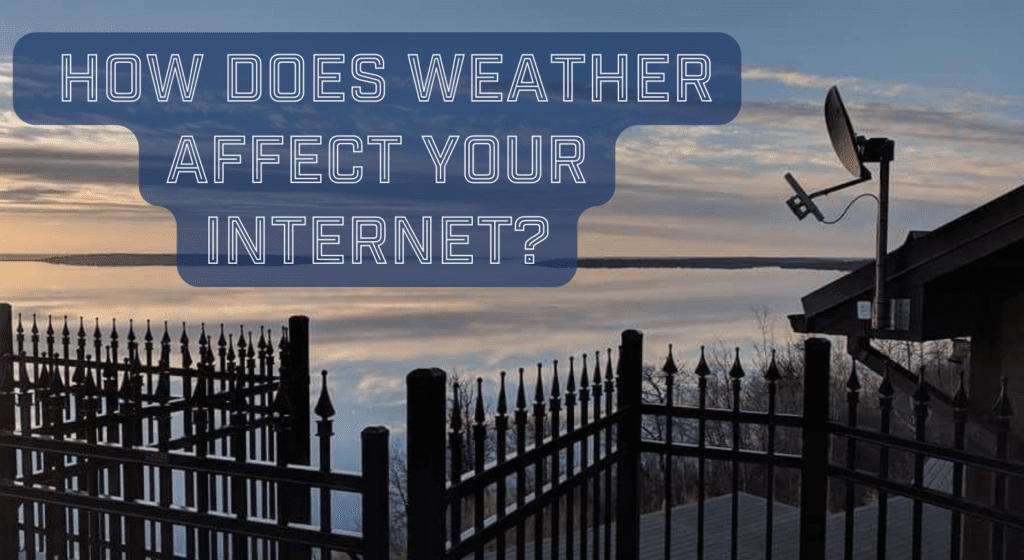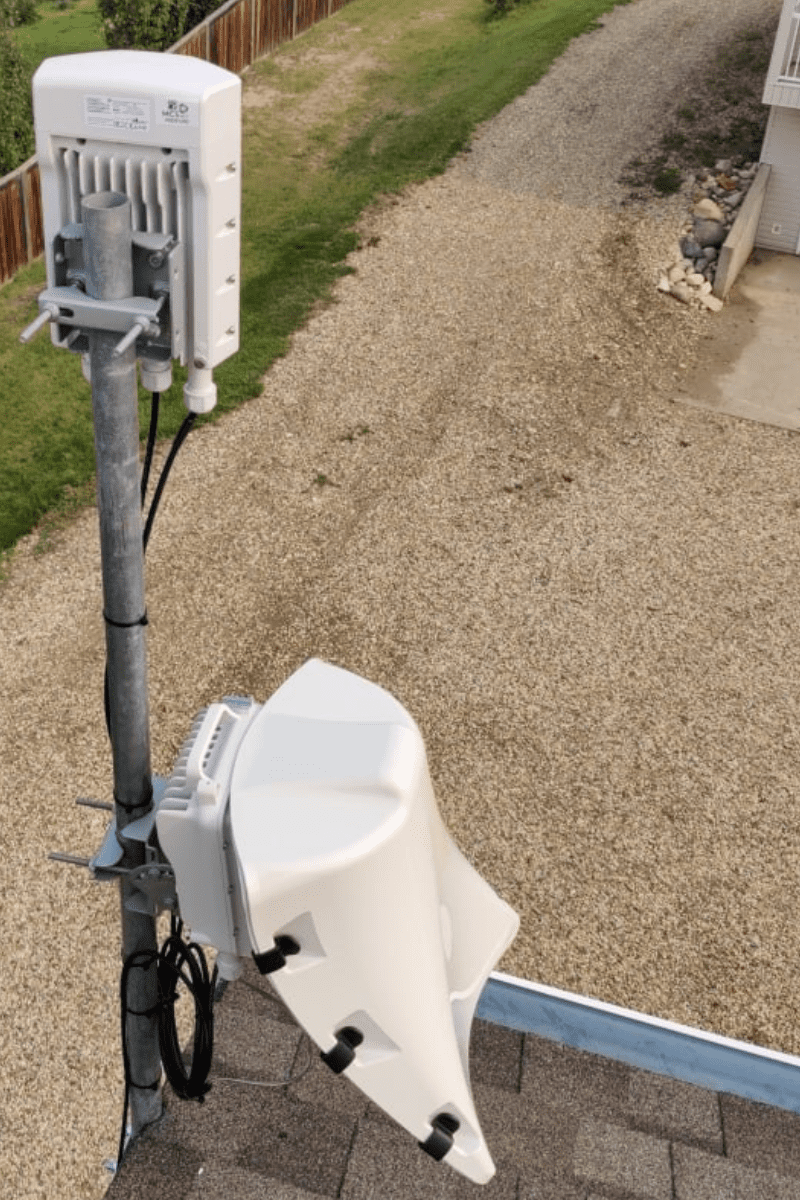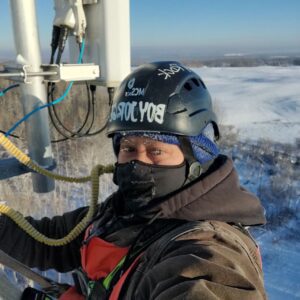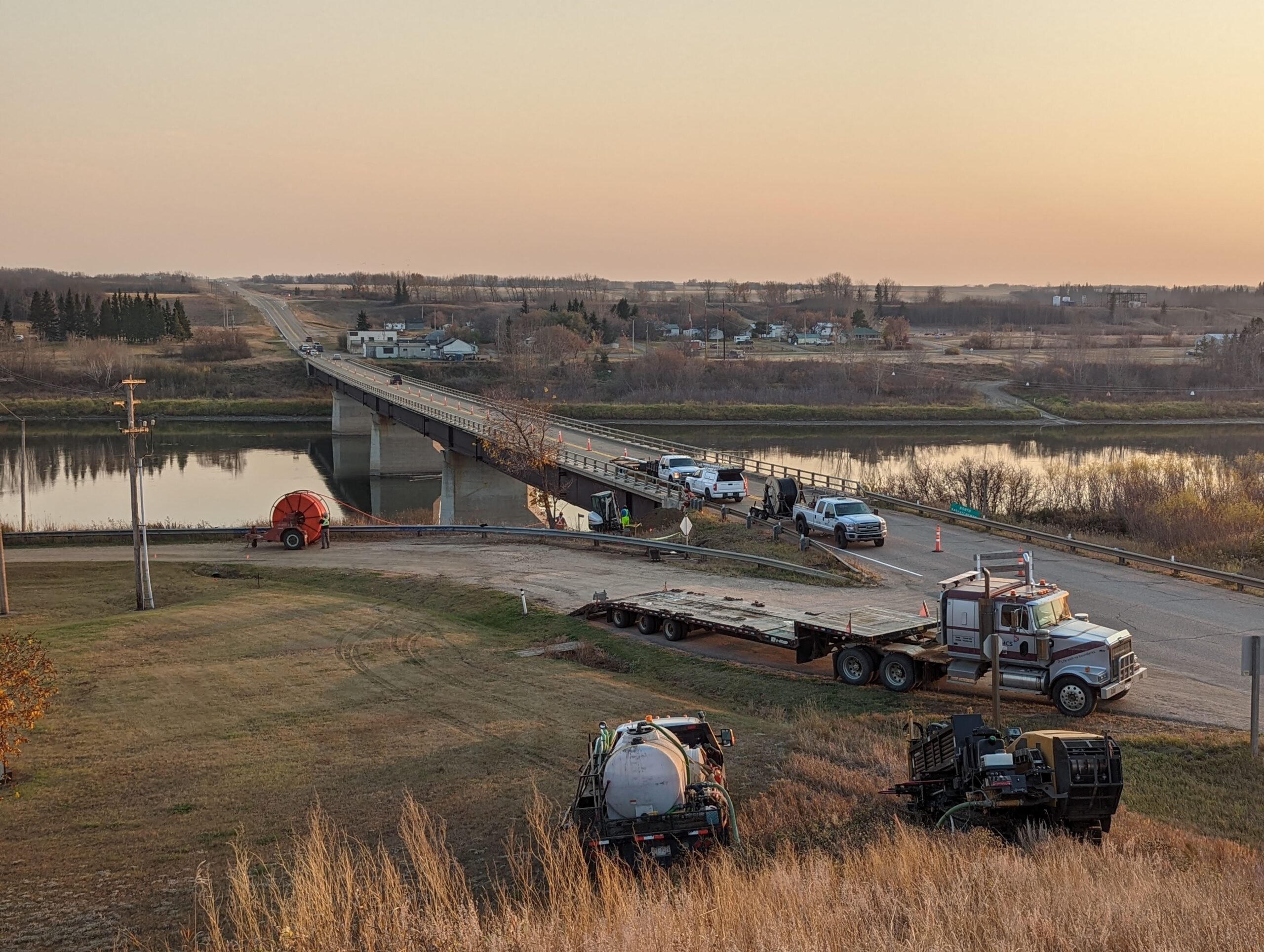
No matter what type of internet service you have at your home or business, it can be affected by inclement weather. There are several broadband options available for connecting to the internet and MCSnet has developed a wide array of internet options to provide rural Albertans with a reliable service, no matter the weather.
MCSnet’s network is built to be very robust and minimize the effects of weather disruptions. While we do specialize in wireless delivery, we’ve also invested in and constructed over 2,000 km of our own Fiber-to-the-Tower to support our privately-owned network. We also offer Fiber-to-the-Premise services in Fort Kent, Cherry Grove, and Mallaig.
The tower network is designed to get your wireless signal transmitted as quickly as possible, granting you the benefits of physical fiber as it relates to protection from the elements. Your signal travels a very short distance through the air before receiving the protection of a physical fiber line.
Different Weather Issues and Their Effect on Your Internet
Rain and Snow
Wi-Fi: Water can absorb and deflect radio frequencies, so heavy rain or snow can weaken Wi-Fi signals. This is especially noticeable in systems using 2.4 GHz or 5 GHz frequencies. However, the effect is typically minor unless the rain or snow is particularly heavy.
Satellite Internet: Rain or snow can cause significant attenuation of the signal between a satellite and your dish, leading to a phenomenon known as “rain fade“. This can result in slow or lost connections. Satellite internet has the longest travel time between points so the effects of rain fade are most noticeable with this form of connection. Also with dishes needing to be more horizontally positioned snow accumulation happens more readily and can degrade the signal or obstruct it entirely in the case of a heavy snowfall.
Fiber Optic, Cable and DSL: Generally not affected by rain or snow, unless there’s physical damage to the infrastructure (e.g. downed lines due to a storm in aerial installations).
Fixed Wireless: Heavy rain or wet snow can cause attenuation in the signal, especially if operating in higher frequency bands (above 10 GHz). This can lead to a reduction in connection speed or even a temporary loss of connectivity. The phenomenon is sometimes referred to as “rain fade.” Wet snow accumulating on antennas can physically obstruct the signal, further degrading the connection. MCSnet dishes are pointing towards a tower (not into space) so there’s little chance snow will accumulate on the dish.

Temperature
Wi-Fi: Extreme temperatures, particularly cold, might affect the performance of outdoor Wi-Fi equipment. Consumer-grade equipment may not be rated for extreme weather conditions.
Satellite Internet: Satellite dishes are quite resistant to temperatures with some reported issues happening once the dish reaches 50°C or above. This doesn’t damage the dish but could cause it to enter a protected mode.
Fiber Optic, Cable and DSL: Extreme cold might make physical cables more brittle, leading to a higher likelihood of breakage, though this is rare. All MCSnet fiber is installed underground so the effect of temperature is greatly reduced.
Fixed Wireless: Extreme cold does affect our lower frequency radios in the 900 MHz range. However, our crews are committed to replacing these radios within 24 hours of a service disruption.

Wind
Wi-Fi: Wind itself doesn’t typically affect Wi-Fi, but strong winds can cause physical obstructions (like tree branches) to move into the path of the signal, causing some disruption.
Satellite Internet: Strong winds might misalign a satellite dish, causing connection problems. If your dish is installed in a wind prone location this may be problematic.
Fiber Optic, Cable and DSL: These are primarily installed underground so wind is not a factor.
Fixed Wireless: As with satellite dishes the swaying of obstructions is the main concern. Alignment to the tower is also critical for your signal. MCSnet ensures our technicians are well trained in the installation of the equipment to ensure it’s securely attached to the structure. Our team is also on-call and ready to respond should a major wind event happen and radios need to be realigned.
Lightning
Wi-Fi, Satellite, Fixed Wireless: Lightning can cause electrical interference that can temporarily disrupt the signal but it can’t deliver a current through radio waves and cause harm to humans or equipment. In the case of Fixed Wireless, lightning may strike a tower and damage the hardware on the tower. We monitor our network 24/7 and will mobilize when it’s safe to do so and get your internet working again quickly.
Fiber Optic, Cable and DSL: Again this is primarily installed below ground and as such is immune to the effects of lighting.
The danger to your devices at home no matter what service you use, is a resulting power surge due to a lightning strike. This can damage networking equipment. If you need to stay connected through a bad storm it’s best to use battery power and have your device plugged into a surge=protection device.
Atmospheric and Solar Phenomena
Satellite: Atmospheric events, such as solar flares, can cause signal disruptions. Such events are less about daily weather and more about space weather, but they can affect satellite communications.
Power Outages
Even if you are connected to the internet via an underground fiber optic internet service, which is rarely affected by most inclement weather, if there is a power outage in your community, the equipment that delivers the signal within your home will not work without power. This goes for all other forms of internet connectivity as well.
Your MCSnet Internet is Reliable
In most everyday weather conditions, users are unlikely to notice any significant impact on their internet connection. However, during severe weather events disruptions can occur. Ensuring that your equipment is properly maintained and protected against power surges, and using weather-resistant hardware where needed, can help mitigate these risks.
Being based in rural Alberta, MCSnet is very aware of all the challenges inclement weather has on your internet services and we’ve taken every step possible to mitigate these problems. If your signal is disrupted, we will address it within a business day or less.




